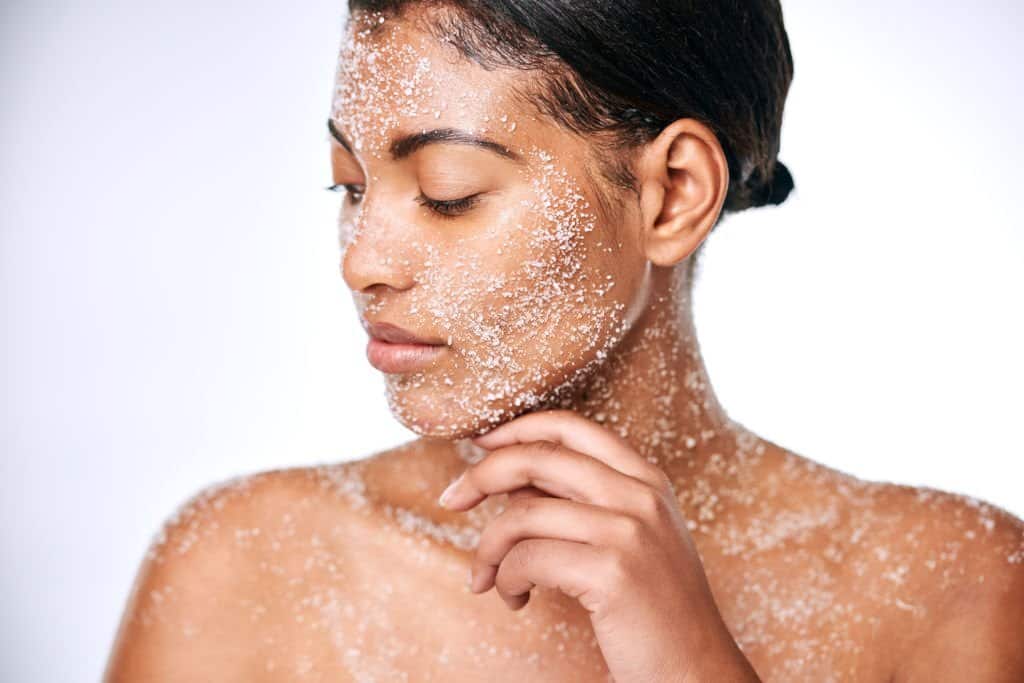Dry skin is a common problem during pregnancy, affecting as many as three-quarters of pregnant women. While the exact cause of dry skin during pregnancy is unknown, several factors are likely to contribute, including hormonal changes, increased water loss due to pregnancy-related increases in blood volume, and changes in how the skin produces oil. Dry skin can be itchy and uncomfortable, leading to cracking and bleeding. In severe cases, dry skin can also affect wound healing. Fortunately, there are a number of steps you can take to help prevent or relieve dry skin during pregnancy. Today, In this article, we’ll discuss the causes of dry skin pregnancy and some of the best ways to treat it.
Causes of dry skin during pregnancy
Hormonal changes
The first and foremost cause of dry skin during pregnancy is hormonal changes. As your body prepares for childbirth, your hormone levels will fluctuate. These fluctuations can cause your skin to dry out as your body produces more estrogen and progesterone during pregnancy and increases your skin’s oil production. This can lead to dryness, itching, and flaking. The increased oil production can also clog your pores and lead to breakouts.
Increased water loss
Another common contributing factor to dry skin during pregnancy is increased water loss. This occurs due to several factors, including an increase in blood volume, which can lead to more frequent urination, and the fact that pregnant women often sweat more than usual. In addition, the skin’s ability to hold on to Water decreases as pregnancy progresses, which can also lead to dryness. The best way to combat increased water loss is to drink plenty of fluids and avoid hot showers or baths, which can further dry the skin.
Changes in the way the skin produces oil
As your body produces more estrogen and progesterone during pregnancy, your skin produces oil changes. The skin’s sebaceous glands become more prominent and have more oil. However, this increase in oil production is often not enough to offset the loss of Water, which can lead to dryness.
Environmental factors
External factors such as dry air and sun exposure can also contribute to dry skin during pregnancy. Dry air, which is common in the winter months, can rob your skin of moisture, while sun exposure can cause dryness and irritation. The best way to combat dryness caused by these external factors is to use a humidifier in your home and apply sunscreen with an SPF of 30 or higher outdoors.
Friction from clothing or bedding
Friction from clothing or bedding can also cause dry skin during pregnancy. The constant rubbing against your skin can irritate and inflame it, leading to further dryness and discomfort. The best way to prevent this is to wear loose, comfortable clothing and to avoid bedding that’s too tight or abrasive.
Home remedies for dry skin during pregnancy
1. Eat plenty of healthy fats


Eating plenty of healthy fats is the first best way to prevent dry skin during pregnancy. Fatty acids, such as omega-3s and omega-6s, help to keep the skin hydrated and healthy. Healthy fats help to moisturize the skin and protect against dryness. Good sources of fatty acids include fish, nuts, seeds, and avocado, olive oil. You can also take a supplement containing fatty acids if you’re not getting enough from your diet.
2. Drink plenty of fluids
As we mentioned earlier, increased water loss is a common cause of dry skin during pregnancy. The best way to combat this is to drink plenty of fluids. Water is the best choice because Water helps to flush out toxins and keeps the skin cells plump and hydrated. Aim to drink eight glasses of Water per day. You can also drink fruit juice, herbal tea, or milk to help increase your fluid intake. Avoid sugary drinks like soda and sports drinks, as they can actually contribute to dehydration.
You may need it too: Dry Skin in Ears: Causes, Symptoms, Treatment, FAQs
3. Use a humidifier


If you’re experiencing dry skin during your pregnancy, using a humidifier can be a great way to help combat the dryness. Humidifiers add moisture to the air, which can help to keep your skin hydrated. They are especially beneficial in the winter when the air is dry and can rob your skin of moisture.
Humidifiers come in many different sizes and shapes, and many different types of humidifiers are available on the market. If you’re looking for a humidifier to treat dry skin pregnancy, you’ll want to choose one with a relaxed mist setting. This will help to moisten the air without overheating your home or causing discomfort. Be sure to clean your humidifier regularly to prevent the growth of bacteria and mold.
4. Avoid hot showers and baths


While a relaxing hot shower or bath may sound like the perfect remedy for dry skin, it can worsen the dryness. Hot showers and baths can dry your skin and strip it of its natural oils. If you’re experiencing dry skin during pregnancy, opt for cool or lukewarm Water when showering or bathing. You may also want to limit your time in the shower or bath to 10 minutes or less to prevent excessive drying of the skin. And be sure to use a moisturizing soap or body wash. After your shower or bath, dry yourself off gently with a towel and apply a moisturizer to your skin.
5. Apply a natural oil or cream


Many different oils and creams can help to hydrate dry skin. One of the best things you can do for dry skin during pregnancy is to apply a natural oil or lotion to your skin. Natural oils, such as Coconut oil, Almond oil, and Shea butter, can help seal moisture and protect against dryness. Be sure to choose a product that is fragrance-free and doesn’t contain any harsh chemicals.
Coconut oil:
This is one of the most popular oils for dry skin during pregnancy. Coconut oil is rich in antioxidants and fatty acids that can help nourish and protect the skin.
Shea butter:
Shea butter is another popular choice for dry skin during pregnancy. It’s rich in vitamins E, fatty acids, and minerals, which help to improve dry skin.
Almond oil:
Almond oil is a light, non-greasy oil that’s rich in vitamin E. Vitamin E helps to protect the skin from damage and keeps it smooth and soft.
To use natural oils for dry skin during pregnancy, simply massage the oil into your skin. You can apply the oil before showering or bathing or after showering or bathing.
When it comes to finding the best cream to treat dry skin during pregnancy, it’s crucial to choose a safe and gentle product for pregnant skin. Some of the best creams for skin during pregnancy include:
Aquaphor Healing Ointment:
This ointment is enriched with glycerin and shea butter, which help to repair and protect dry skin. It’s also free of fragrances and other harsh chemicals.
Eucerin Intensive Repair Cream:
This cream is rich in lipids and glycerin, which help to nourish and hydrate dry skin. Eucerin Intensive Repair Cream: This cream is rich in lipids and glycerin, which help to nourish and hydrate dry skin. This cream is also fragrance-free and non-greasy, making it a good choice for dry skin.
Burt’s Bees Mama Bee Nourishing Lotion:
This lotion is made with natural ingredients like beeswax and sunflower oil, which help to nourish and moisturize dry skin.
6. Exfoliate your skin


Exfoliation is important for all skin types, but it’s especially important for dry skin. Exfoliating helps remove dead skin cells and other impurities from the skin’s surface. This can help to improve dryness, flakiness, and roughness. When exfoliating skin during pregnancy, be sure to use a gentle exfoliator. A facial scrub or body scrub can be too harsh for dry, sensitive skin. Instead, try using a dry brush or a gentle exfoliating cleanser.
Many different types of exfoliators are available, but a good choice for skin during pregnancy is an exfoliator containing lactic acid or glycolic acid. These acids help to break down the bonds that hold dry skin cells together, which allows them to be removed more easily. Be sure to choose an exfoliator that is gentle enough for pregnant skin.
Final Words:
So there you have it, some of the best ways to treat dry skin during pregnancy. Remember, dry during pregnancy is common and usually, nothing to worry about. But if you’re concerned about your dry skin or it’s causing you discomfort, be sure to talk to your doctor or midwife. Also, make sure to drink plenty of Water, eat a healthy diet, and get enough rest. These lifestyle changes can help improve skin during pregnancy.

